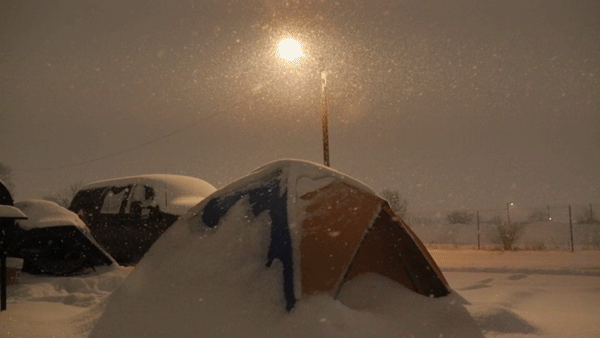
On Monday, the Metro Denver Homeless Initiative (MDHI) will begin its annual "Point-in-Time" Survey, an effort to tally the city's unhoused population.
Homelessness is always a hot topic in the city. While the survey aims to help us understand the problem, it is more crucially a requirement to apply for millions of dollars from U.S. Housing and Urban Development (HUD) that goes into permanent housing programs around the region.
This year, MDHI has expanded their efforts to try to make the count more accurate; it's notoriously difficult to get the number right. But, the expansion means the agency needs more hands on deck. With less than a week to go, they need about 150 more volunteers, mostly in Denver.
According to Executive Director Will Connelly, MDHI was founded in 1994 to take and manage data related to homelessness. He says he hopes the organization can be "more than a broker for HUD," but acknowledges their role in applying for federal dollars is extremely important in getting people off the streets.
This year, HUD doled out more than $2 billion to area agencies who then distributed the cash among local organizations. According to Connelly, MDHI received $25 million of that based on their 2017 survey.
In Denver, Connelly said that money goes to nonprofits like Family Tree Inc. and Urban Peak specifically to support permanent housing programs: rental subsidies and case managers' salaries.
There are three kinds of counts: tallies of people entering shelters (like near the Denver Rescue Mission), tallies of people who do not sleep in shelters, and "magnet events" that seek to attract young people who often slip through the cracks. Those magnet programs have been an area of focus as survey coordinators attempt to count more people.
"We have expanded in every single county," said MDHI community coordinator Diane Howald. "We want to make sure everybody counts in our community."
If you're interested in volunteering, head over to the survey's website.
"It’s not your typical volunteer event," Connelly said. "You can interact with people that you may never interact with in your day-to-day life and get a different look at the region and Denver."











